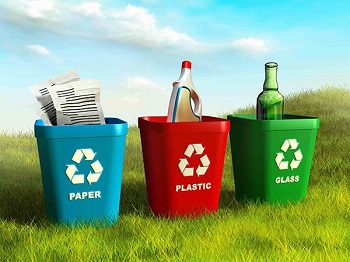How to start a recycle business – Starting a recycling business in Hermanus, or any other location, requires careful planning and execution. Here’s a step-by-step guide to help you get started:
How to start a recycle business, planning and considerations
- Research and Planning:
- Conduct market research to assess the demand for recycling services in Hermanus. Identify the types of materials that are most commonly recycled in the area.
- Analyze the competition and understand their offerings, pricing, and target market.
- Develop a business plan outlining your goals, target market, pricing strategy, marketing plans, and financial projections.
- Legal Considerations:
- Register your business and obtain all necessary licenses and permits required to operate a recycling business in Hermanus. Contact local authorities or business regulatory agencies for specific requirements.
- Familiarize yourself with the environmental regulations and waste management laws applicable to recycling businesses in your area.
- Infrastructure and Equipment:
- Secure a suitable location for your recycling facility. Consider factors such as accessibility, space requirements, and proximity to your target market.
- Determine the types of materials you will collect and recycle. Acquire appropriate recycling equipment such as sorting machines, crushers, balers, and shredders based on the materials you’ll be processing.
- Set up proper storage and handling facilities to organize the collected recyclables efficiently.
- Collection and Sorting:
- Establish collection points or partner with local businesses, schools, and communities to collect recyclable materials. Provide easily accessible bins or containers for the public to deposit their recyclables.
- Develop a sorting system to separate different types of materials (plastics, paper, glass, metal, etc.) for efficient recycling.
- Recycling Partnerships:
- Build relationships with recycling centers, waste management companies, and other relevant stakeholders in the recycling industry. Establish partnerships for the proper disposal and processing of the collected materials.
- Research and connect with potential buyers of recycled materials, such as manufacturers who use recycled materials in their production processes.
- Marketing and Awareness:
- Develop a brand identity and create marketing materials (brochures, flyers, website, social media profiles) to promote your recycling business.
- Educate the local community about the importance of recycling through awareness campaigns, workshops, and collaborations with schools and organizations.
- Offer incentives or rewards programs to encourage individuals and businesses to participate in recycling efforts.
- Operations and Logistics:
- Implement efficient logistics and transportation systems to manage the collection, sorting, and transportation of recyclables.
- Maintain proper record-keeping systems to track the quantity of materials collected and processed.
- Continuously optimize your operations to improve efficiency and reduce costs

Remember that starting a recycling business requires investment, commitment, and ongoing effort. Stay updated with the latest recycling technologies, industry trends, and best practices to ensure your business remains competitive and environmentally sustainable.
How Profitable is a Rycling Business
The profitability of a recycling business can vary depending on various factors such as the location, scale of operations, types of materials recycled, market demand, competition, and operational efficiency. Here are some key points to consider regarding the profitability of a recycling business:
Market Demand and Pricing: The demand for recycled materials fluctuates based on factors such as economic conditions, environmental awareness, and government regulations. Some materials may have higher market demand and better pricing than others. It’s essential to assess the local market in Hermanus to determine the potential profitability of your specific recycling business.
Cost of Operations: The cost of running a recycling business includes expenses such as facility rent, equipment maintenance, labor, transportation, marketing, permits, and waste disposal fees. Efficient management of these costs is crucial to maintain profitability. Increasing economies of scale by processing larger volumes of recyclables can help reduce costs.
Revenue Streams: A recycling business generates revenue through various channels, including selling sorted and processed recyclable materials to manufacturers or wholesalers, providing recycling services to businesses or municipalities, and participating in government incentive programs or contracts. Developing multiple revenue streams can contribute to the profitability of the business.
Competitive Landscape: The level of competition in the recycling industry can impact profitability. Assess the existing competitors in Hermanus and identify your unique selling points, such as specialized recycling services, superior customer service, or innovative recycling techniques, to differentiate your business and attract customers.
Efficiency and Innovation: Implementing efficient sorting and processing methods, investing in modern recycling equipment, and adopting innovative technologies can improve productivity and reduce costs. Continuously seeking ways to optimize operations and exploring new recycling opportunities can positively impact profitability.
Government Incentives and Grants: In many regions, governments offer incentives, grants, or tax benefits to encourage recycling businesses and promote environmental sustainability. Stay updated on such programs and take advantage of available opportunities to enhance profitability.
It’s important to note that while a recycling business can be profitable, it may take time to establish a strong customer base, build relationships with recycling partners, and optimize operations. It’s crucial to conduct thorough market research, create a solid business plan, and closely monitor financial performance to ensure long-term profitability.
